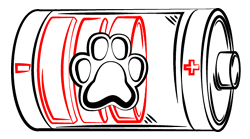
Paws ‘N’ Pups Quickview
Size
| Energy Level
| Trainability
| Paws ‘N’ Pups Rank
|
Characteristics
| Physical Characteristics: Height: 13-18” Weight: 20-26 lbs. Energy Level: Moderate – High | Colors: The Jack Rat Terrier is found in the following colors:
|
Health & Longevity
Average Life Span: 12-16 years
The Jack Rat Terrier is a hybrid breed of the Rat Terrier and the Jack Russell Terrier. When it comes to crossbreeds, it is important to look at health conditions and major health concerns from both parent breeds.
Your Jack Rat Terrier will most likely be healthy as long as you work with a reputable breeder. If you purchase your pup from a breeder with poor standards, then he or she may have some health problems.
Some of the health conditions to keep an eye on include deafness, demodectic mange, eye problems, Legg-Calve-Perthe’s Disease, allergies, and patellar luxation.
Deafness occurs when your pup loses some or all of his or her hearing. You may notice that your pup is born deaf or the condition may occur over time. If your Jack Rat Terrier is deaf, you will need to make sure you adjust your training and daily habits to help your pup cope.
Demodectic mange may affect your Jack Rat Terrier and is caused when there is an overpopulation and sensitivity to mange, which is a parasite on your pup. This condition can lead to the loss of hair, irritation, redness, and extreme itching.
Eye problems may appear in your Jack Rat Terrier and can range from an eye infection to dry or itchy eyes or even eye allergies. It is important that you work with your veterinarian to narrow down what the problem is and how to correct it.
Legg-Calve-Perthe’s Disease is a disease that is passed down to your Jack Rat Terrier and involves the degeneration of the head of the femur bone. This disease leads to bone and joint inflammation, which is painful.
Allergies may also appear in your Jack Rat Terrier and can range from a simple corn allergy to an environmental allergy. You will need to let your veterinarian know if you suspect that your pup may have an allergy or two.
Lastly, patellar luxation is a knee dislocation and often occurs in small pups and is more prevalent in females. If a dislocation occurs, you may notice that your pup keeps his or her leg elevated off of the ground.
The Jack Rat Terrier has a life expectancy of 12 to 16 years.
Temperament & Train-ability
The Jack Rat Terrier is an affectionate pup that will show you and your family a lot of love. You will find that this breed likes to follow you around and be as close to you as possible. Sometimes, your Jack Rat Terrier may be so close to you that he or she follows you in and out of rooms in your house.
This breed is known to have a bit of a stubborn streak and you may feel frustrated at times when this streak kicks in. You will find that training comes easy, but when he or she feels like being stubborn, your commands will not stick and your pup may wander.
It is imperative that you remain calm and use consistent and firm methods to train and not harsh methods, as this will only cause trust problems and make your pup act up more.
The Jack Rat Terrier is not necessarily a lazy dog, but you may find him or her lounging on the couch. In general but especially when outside, your pup will run around, play, and have a high level of energy. Because of this, it is important that your dog gets some daily outside time along with some mental and physical stimulation inside of your home. A walk of 30 minutes per day should be enough.
Your Jack Rat Terrier will probably have a bit of a comical side to him or her and you will notice that he or she likes to entertain you and put on a show. Whether it is giving you a cute look, barking to get your attention, or even jumping on his or her two hind legs, you are sure to let out a belly laugh now and again.
Grooming
The Jack Rat Terrier will shed a bit and has some moderate grooming needs, but nothing that you need to be scared of. You should brush your pup’s coat at least once per day to help reduce the amount of shedding and to keep your pups coat nice and smooth.
A bath is only needed about once a month or when you see that your pup is quite dirty. In fact, if you bathe your pup too much, he or she may develop skin problems. When you bathe your pup, choose a mild shampoo that is designed for sensitive skin.
You want to make sure that you clean your pup’s ears once per week to avoid infections. Lastly, always trim your Jack Rat Terrier’s nails, so that they do not become too long.
Diet
Your Jack Rat Terrier will consume anywhere between 3/4 cup and 1 1/2 cups of dry food per day. You should feed your pup a high quality premium dry food that contains natural ingredients and whole foods.
You can feed your Jack Rat Terrier wet food on occasion, but you should not rely on it as a main source of food because your pup will not receive the nutrients he or she needs from it. In addition, wet food leads to dental problems and obesity.
Looking for a Jack Rat Terrier?
 Find A Jack Rat Terrier Breeder |  Jack Rat Terrier Puppies For Sale |  Adopt A Jack Rat Terrier |
Cost
A Jack Rat Terrier puppy will cost your anywhere between $200 and $650. This cost is for the puppy only and you will still be responsible for purchasing and paying for supplies, food, vaccines, checkups, and more. Before purchasing your puppy, be aware of what the overall costs are to bring him or her home and also the ongoing costs.
Paws ‘N’ Pups Ranking
Paws ‘N’ Pups ranks every breed out of 4 with 1 being easiest to integrate into your life and 4 being the toughest – The lower the ranking the better.
Ranking takes into account a few basic factors including cost, skill level needed, high vs low maintenance and how critical regular training is to success. The Jack Rat Terrier is a high energy dog who likes to play outside, but can wind down and provide you with the affection you want and need from a dog. This breed is generally easy to train and maintain, but may have a stubborn side or two now and again. This breed ranks a 2.
Breeds Similar To Jack Rat Terrier
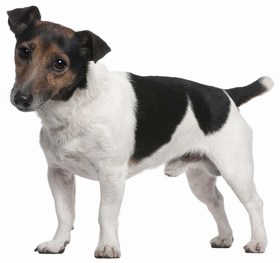 Jack Russell Terrier | 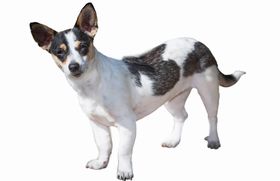 Rat Terrier | 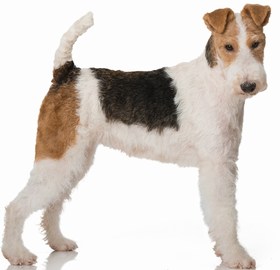 Wire Fox Terrier | 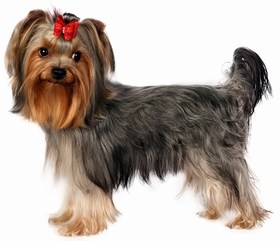 Yorkshire Terrier |


